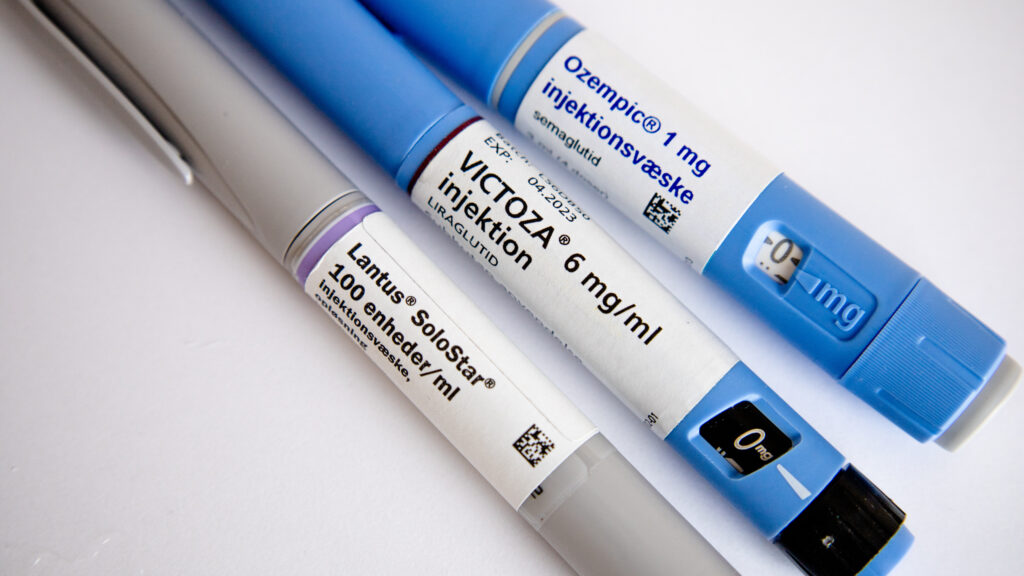Want to stay on top of the science and politics driving biotech today? Sign up to get our biotech newsletter in your inbox.
Hello, everyone. Damian here with the latest twist in the GLP-1 saga, some drama in the world of Covid-19 booster shots, and the debut of the 2023 STAT Wunderkinds.
advertisement
The need-to-know this morning
• Gilead Sciences and Assembly Biosciences announced a research partnership to develop new medicines for serious viral diseases, with an initial focus on herpesviruses, hepatitis B, and hepatitis D. Under terms of the agreement, Assembly will receive $100 million from Gilead, including an equity investment.
• Johnson & Johnson reported third-quarter adjusted earnings of $2.66 per share, beating Wall Street’s consensus estimate. Revenue for the quarter was $21.35 billion, an increase of 6.8% year over year. Of note, sales of Carvykti, J&J’s CAR-T treatment for multiple myeloma co-marketed with Legend Biotech, were $152 million, surpassing analyst expectations.
• Privately held SpliceBio signed a research partnership and licensing agreement with Spark Therapeutics, a division of Roche, to develop a gene therapy targeting an inherited eye disease.
GLP-1’s are worth the money. Just ask Lilly and Novo
There’s no question that GLP-1 medicines lead to substantial weight loss, at least in the short term. Now the pharmaceutical giants behind them are focused on persuading physicians that the drugs are worth their controversial price tags.
As STAT’s Elaine Chen reports, Novo Nordisk and Eli Lilly were out in full force at Obesity Week, a convocation of doctors and scientists in the field, with data from more than a dozen studies making the case that the societal benefits of their powerful medicines outweigh the short-term costs. The gist is simple: Products like Wegovy and Mounjaro may not be cheap, but an unchecked increase in obesity is far more expensive.
advertisement
The manufacturers’ efforts come as escalating demand for GLP-1 drugs has made insurance plans slow to grant wide access to them, concerned that the vast amount of people eligible for the drugs, combined with their high list prices, could lead to significant financial strain.
Moderna isn’t backing down
Days after Pfizer slashed its revenue projections to account for dwindling demand for Covid-19 vaccines, Moderna said in a statement that it “remains comfortable” with its own sales forecasts for 2023.
Back in August, Moderna said it expected to make between $6 billion to $8 billion in Covid-19 revenue this year, a projection some analysts viewed as more than a little optimistic. Sudden conservatism on the part of Pfizer, the Covid vaccine market leader, sent Moderna’s share price down about 5% yesterday, despite the company’s reaffirmation of its original sales guidance.
We’ll get some clarity on Nov. 2, when Moderna reports its third-quarter earnings and, presumably, shares an update on the demand for its booster shots. The company is profitable and commands a market value of more than $35 billion, but its stock has been cut in half since the beginning of the year, and it’s down nearly 80% from its zenith in 2021.
Meet the 2023 STAT Wunderkinds
A scientist taking a novel look at Alzheimer’s disease, a researcher who left Wall Street for academia, and a biotech bench scientist working to control the body’s most dangerous cell.
You can read all about them and 25 more impressive doctors and researchers at the cusp of launching their careers in the 2023 edition of STAT Wunderkinds. Each year we set out to celebrate the unheralded heroes of science and medicine, poring over hundreds of nominations from across North America in search for the next generation of scientific superstars.
This year, as in past years, we’ve found inspiring stories and innovative research. All are blazing new trails as they attempt to answer big questions in science and medicine.
Has the amyloid hypothesis become conventional wisdom?
That’s the only explanation for why a major drug company would buy Prothena, maker of an amyloid-targeting Alzheimer’s disease treatment, before the company even has Phase 1 data.
Prothena’s share price rose more than 20% yesterday after Bloomberg reported the company was preparing itself for a potential sale. The target of any acquisition would be PRX012, an antibody to amyloid that is administered subcutaneously. Leqembi, an approved Alzheimer’s treatment from Eisai and Biogen, is an intravenous medicine, and so is donanemab, an Eli Lilly drug expected to win approval this year.
But PRX012’s value remains largely theoretical. Prothena is still working through Phase 1 and won’t have preliminary data for a few months. If the company’s reported discussions result in a deal, it would suggest the drug industry has fully accepted the once controversial idea that amyloid-targeting medicines will necessarily benefit patients with Alzheimer’s disease, a dramatic change from the status quo of just a few years ago.
More reads
• Teva sues Colorado over ‘unconstitutional’ program to lower cost of epinephrine injectors, STAT
• Novavax positive on updated Covid vaccine availability in U.S., Reuters
• Serotonin levels are depleted in long Covid patients, study says, pointing to a potential cause for ‘brain fog,’ STAT

